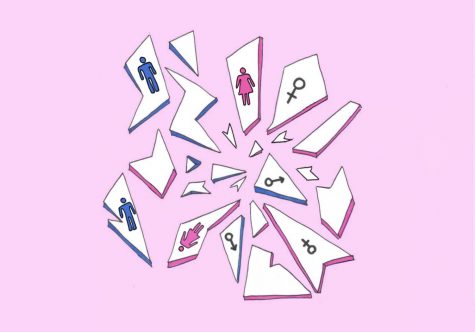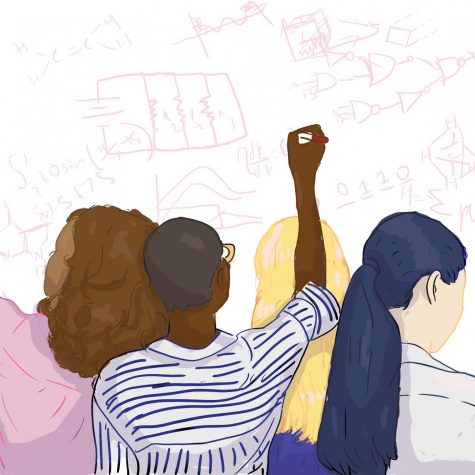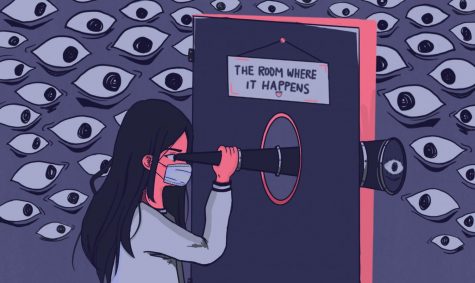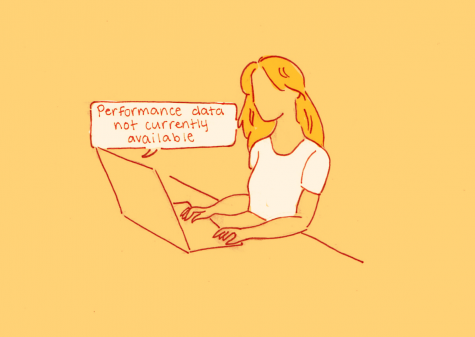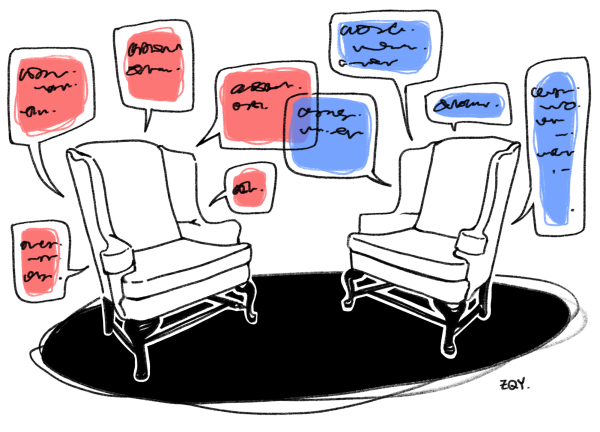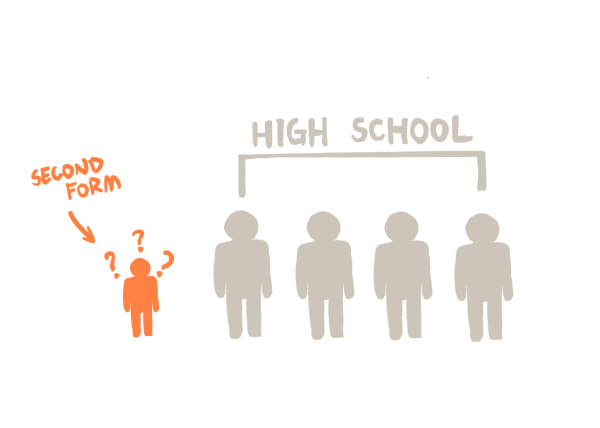The Dangers of Groton’s Echo Chamber
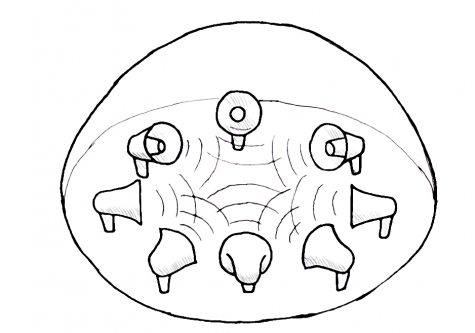
When I first set foot on the Circle, I was in for a major culture shock: coming from a conservative public school in a conservative Floridian town, I was not used to the overtly left wing culture at Groton. At my old school, talking about politics was considered taboo; teachers’ jobs were on the line if they so much as hinted toward their political leaning. So when I arrived at Groton, I fell in love: I was in liberal heaven.
Yet I gradually realized that Democratic maxims were almost being drilled into my head. Soon, I found myself subconsciously rebelling against the leftist tenets that I had previously supported.
Last spring, a survey was taken for the Circle Voice by Marianne Lu ’19 and Lily Cratsley ’19 to collect data on the student body. It revealed that 65% of Groton students identified as Democrats, whereas only 20% identified as Republicans. Almost 90% of these Republican students said they felt the need to self-censor. The exclusive atmosphere created by these numbers creates a stigma around conservative viewpoints and generates the assumption that all Grotonians are Democrats.
These statistics are undoubtedly problematic and have been discussed at Groton for years, yet is ignored by administration and faculty. Invited speakers and hired faculty members remain unhealthily similar. And although many are aware of the issue, students and faculty make little effort to create a more inclusive environment for conservative voices.
More concerningly, it demonstrates that an echo chamber has been cultivated at Groton by students, faculty, and outside speakers. Class discussions often revolve around leftist values. Most clubs, such as Groton Feminists, Cultural Alliance, and Diversity & Inclusion, are perceived as leftist; during meetings, identical opinions are voiced with little intention to challenge those ideas. In fact, Young Republicans is the only club on campus that expresses explicitly conservative opinions. This social environment lets concurring opinions circulate around the school with almost no new thoughts introduced.
The abundance of left-leaning speakers also exhibits Groton’s implicit endorsement of leftist beliefs. One notable example was the 2019 MLK Day Speaker Rosa Clemente, an avid leftist and ‘hip-hop feminist’ who delivered a fiery, controversial speech. Her talk forced the school to question whether its support of leftist perspectives, especially those as radical as Clemente’s, could prove detrimental to students.
Director of Inclusion Outreach Carolyn Chica explained in an interview conducted last year by Cara Chang ’20 that she invited Clemente because “it is important to listen to everyone’s voice despite the delivery of their message. Whether someone is soft-spoken or angry, their voice is still valuable.” While this point is undeniably true, the school has only applied this logic to leftist s thus far.
It’s ironic, then, that our Diversity and Inclusion Mission Statement declares Groton’s intention to uphold the diversity of “perspectives…and political ideology.” As John Rogers ’22, who “openly [admits] to being more right-oriented,” commented, “students on [the conservative end of the] spectrum are not only unable to express their beliefs, but are…unable to grow intellectually by considering multi-faceted issues.”
Why has such a leftist -skewed atmosphere been allowed to develop? After all, as Ethics Teacher Dr. Celene Ibrahim noted, it is a gross misconception that “all Republicans are climate change deniers… [and] all Republicans are xenophobic.” Our school must consciously avoid the implicit assumption that all Republicans share these viewpoints or will abuse a platform if given one.
And while attempts have been made to raise awareness on the topic, no real progress has been made. Last year, Bennet Smith ’19 gave his chapel talk on how he struggled to voice his opinions in leftist -dominated classes: “I wanted to share my thoughts, but for some reason, I felt like the veil of political correctness combined with the mountain that stood over me didn’t allow for another belief to be welcome at the table. Like my ideas and my opinions would just be swallowed.”
History teacher Amanda Reichenbach even gave a chapel talk early this year reintroducing the issue of the echo chamber. Although well-crafted and accurate, the talk sparked little discussion, and no direct action was taken toward solving the problem.
Fortunately, the University of Chicago Institute of Politics has proposed a solution to this problem. Its administration purposely invites speakers whose viewpoints are not fully endorsed by the school. This presents a balance of leftist and conservative media, allowing for more developed perspectives and broader comprehension of societal issues.
An adaptation of this idea to Groton would be reforming the method by which speakers are selected. A quota should be established by the committee that enforces a proportional invitation of conservative, leftist and independent speakers to expose students to diverse content and encourage discussion at school.
Republicans whose relatively moderate divergence from the school’s beliefs could induce discourse at Groton: for example, Thomas Sowell is a conservative economist and social theorist who focuses on the economic and social aspects of traditional conservatism, rather than the moral aspects. Mr. Sowell, among others, could be the introduction Groton students desperately need to conservativism. Other conservatives interested in topics such as environmental or social justice issues could also demonstrate to the school that their opinions are just as valid as leftist, introducing new ideas to the table.
Though the purpose of the school’s speeches is not to introduce political contention, the Speakers Committee should nonetheless avoid inviting solely leftist speakers.
One compelling conservative speaker could be the lightning rod for Groton to end the cycle of student self-censorship and the leftist echo chamber. Moreover, Groton’s community must be willing to invite speakers and hire faculty members of all viewpoints to create the fully inclusive community the school has been striving to achieve for so long.
Editor-in-Chief


